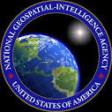NGA posts RFI for Acadia program
 The National Geospatial-Intelligence Agency (NGA), in support of the NGA Test and Evaluation (T&E) office, is seeking information on how an interested contractor could provide image quality support, test tool development and automation, and test control center management for the Acadia program. Acadia is the follow-on to the current Phoenix contract. Responses are due no later than 5:00pm ET on June 16.
The National Geospatial-Intelligence Agency (NGA), in support of the NGA Test and Evaluation (T&E) office, is seeking information on how an interested contractor could provide image quality support, test tool development and automation, and test control center management for the Acadia program. Acadia is the follow-on to the current Phoenix contract. Responses are due no later than 5:00pm ET on June 16.
NGA has a mission-critical need to deliver T&E services providing: image quality and utility assurance services, production and maintenance of data quality standards and scales, technical support and management of an independent enterprise verification testing environment, and development/operation/maintenance of automated test tools, in both cloud and DevOps environments.
The mission and purpose of the NGA T&E office is to perform quality, utility, functionality, and interoperability verification and validation in support of the National System for Geospatial Intelligence (NSG) to ensure that GEOINT capabilities transitioned to operations provide the best user experience. To accomplish this, NGA T&E evaluates sensor data from various sources, and the systems/tools/applications/services that process, exploit, or disseminate data and products against functional, performance, quality, and interoperability requirements and specifications. The NGA T&E test environment is hosted at NGA Campus East (NCE) and often requires rapid transition between configurations to support an aggressive test schedule for system deployments, and data initialization. The necessary responsiveness and agility in such an environment has resulted in the need for NGA T&E to sustain its own Test Control Center team whose support includes workstation IT support, configuration management services, asset management, and security support.
The current NGA T&E function is accomplished through planning, coordinating and manually performing quality, interoperability, and functionality testing for a multitude of NSG segments, systems, services, and capabilities for the purpose of ensuring new capabilities and upgrades to existing capabilities do not have adverse effects on the NSG. As NGA shifts to a cloud architecture and a DevOps strategy for acquiring and deploying capabilities, NGA T&E services will similarly need to transition its capabilities and strategies to leverage automated test tools and available DevOps tools in order to gain efficiencies in identifying and evaluating risk and impact to the NSG while continuing to support legacy systems still providing updates to operationally deployed capabilities. Similarly, as legacy capabilities transition away from standalone systems to sets of services hosted in the cloud, an increasingly agile and automated test capability will need to be established. Within a DevOps architecture, interoperability testing will necessarily involve identifying gaps in current tools or practices which can be addressed by development of new test tools or available DevOps tools which can be used to verify function, performance, and interoperability. NGA T&E will also seek to further expand automated test capabilities to include automated testing of coded functions of GEOINT applications, and machine learning for automated generation of test code.
To accomplish the broad and growing T&E mission, support objectives and requirements have been divided into three categories for purposes of this RFI: Image Quality Services, Test Center Mission Support, and Test Tool Automation and Development.
Full information is available here.
Source: FedBizOpps








